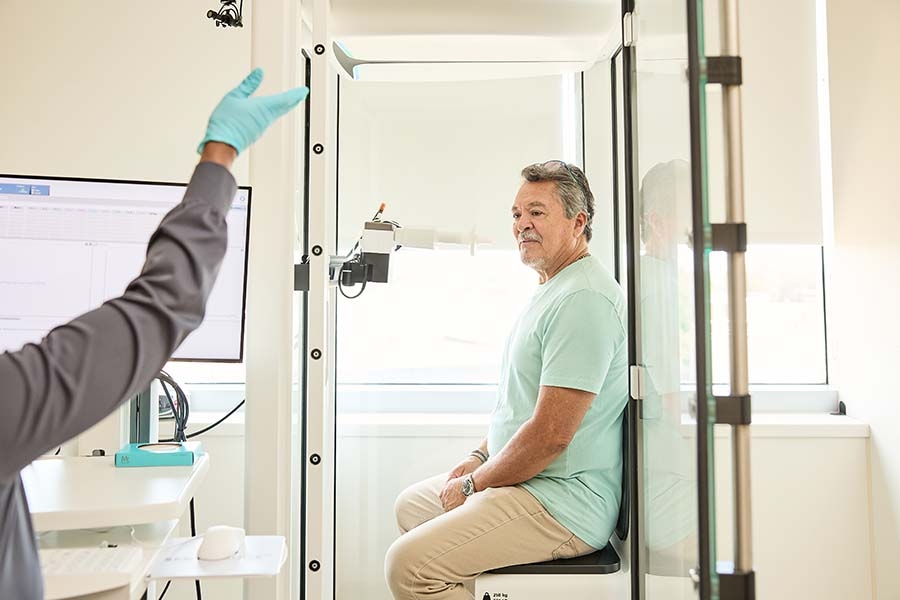Cardiothoracic surgeons have long played a central role in the care of patients with aortic dissection, a life-threatening condition that in the past was treated only with open surgery or medicines. But according to a new study led by Grayson H. Wheatley III, MD, FACS, Associate Professor of Surgery at Temple University School of Medicine (TUSM), and Director of Aortic and Endovascular Surgery at Temple University Hospital, thanks to new minimally invasive endovascular procedures, other specialists are becoming increasingly involved in the management of patients with aortic dissection. In particular, vascular surgeons are playing a greater role in the care of patients with Type B aortic dissection, which affects the portion of the aorta that descends through the chest.
Dr. Wheatley presented the new findings at the 51st annual meeting of the Society of Thoracic Surgeons (STS), January 24-28 in San Diego, California.
Aortic dissection involves a tear in the inner layer of the aorta wall, which permits blood to enter the space between the vessel's inner and outer layers, potentially causing the aorta to rupture. "Tears in the aorta traditionally occur in the chest, and historically their repair has always involved a cardiothoracic surgeon," Dr. Wheatley explained.
"But we have seen a change in the management of patients with aortic dissection. It is not uncommon now to have multiple specialists, such as cardiothoracic and vascular surgeons, involved in the care of patients with aortic dissections, which I believe benefits patient care," he said.
The change has been driven by advances in minimally invasive endovascular surgery, which took off when aortic stents were introduced in the 1990s. Vascular surgeons began to develop expertise in stent-graft repair, in which a flexible fabric-and-metal tube is placed inside the damaged portion of the aorta, without surgically opening the vessel.
The rise of stent-graft repair marked the start of the endovascular era for aortic dissection. Some think that endovascular surgery could eventually replace open surgery for many types of aortic tears. But the technical skills involved in repairing the aorta with a stent are different from standard open heart surgery, and because vascular surgeons have traditionally incorporated endovascular skills into their practice, they are taking on a larger role in the treatment of aortic dissection.
According to Dr. Wheatley, the shift in specialty of the surgeon who manages aortic dissection has become apparent as referral patterns for the condition have evolved. Cardiothoracic surgeons generally have been aware of their changing role, but no one had ever analyzed its extent. "There is no national database tracking system with information on specialists who perform aortic surgery procedures for aortic dissections or who perform aortic stent operations," Dr. Wheatley said.
To figure out which specialists are managing aortic dissections, Dr. Wheatley and colleagues at TUSM carried out a review of research papers published between 1998 and 2013 pertaining to aortic dissection. They then recorded information concerning the authors' specialty affiliations and correlated that information with the use of endovascular technologies.
"We were able to track the change in specialty involvement regarding aortic dissection management to before and after the introduction of stents for aortic dissection," Dr. Wheatley said.
The new findings suggest that cardiothoracic surgeons will need to continue to incorporate endovascular skills into their training programs in order to be able to offer the latest minimally invasive aortic stent-graft therapies to their patients. As new types of aortic stents become available for more complex aortic dissections, such as Type A dissections, the endovascular skills needed to deliver stents will become increasingly complex.
"The findings are a call to action," Dr. Wheatley said. "For cardiothoracic surgeons to remain involved in the management of patients with aortic dissection, training programs will need to be adapted to increase training in the use of aortic stents."
"Seeing that the next generation of surgeons is adequately prepared is paramount to improving patient care," explained co-author on the study, Larry R. Kaiser, MD, FACS, Dean of Temple University School of Medicine and President/CEO of Temple University Health System.
"Temple has a remarkable track record when it comes to producing leaders in medicine," he added. "We aim to continue that tradition, and our findings on the role of specialty in the management of aortic dissection offer another means of fulfilling that goal."
Dr. Wheatley delivered the poster presentation on the changing role of the cardiothoracic surgeon at the STS meeting on Jan. 25.

